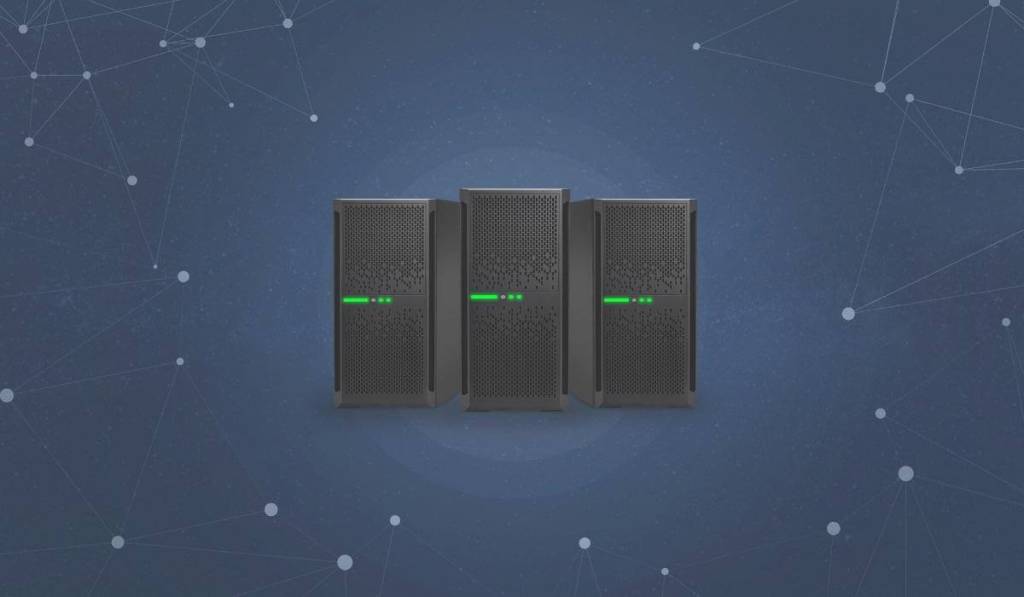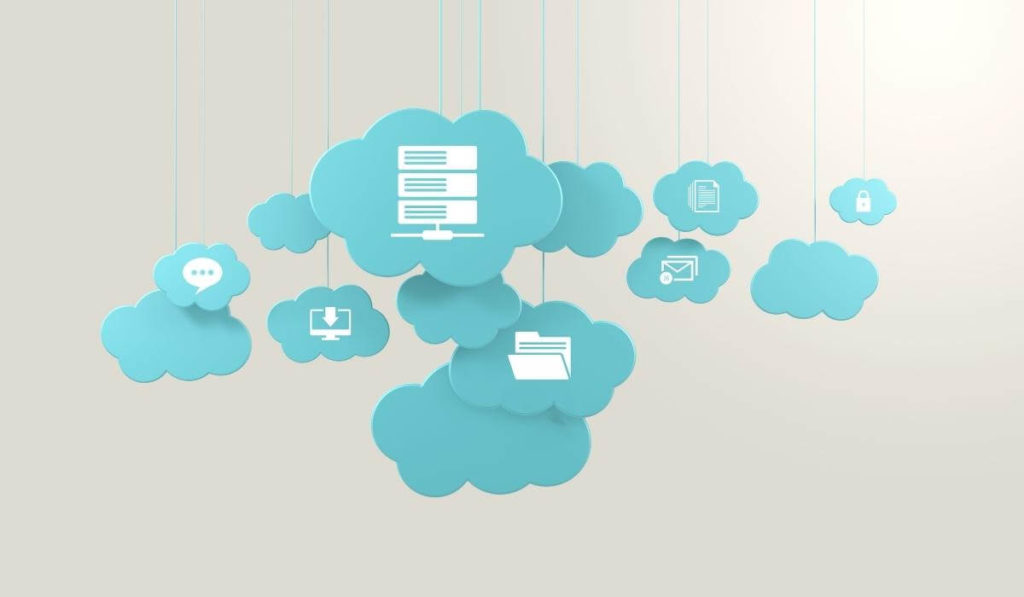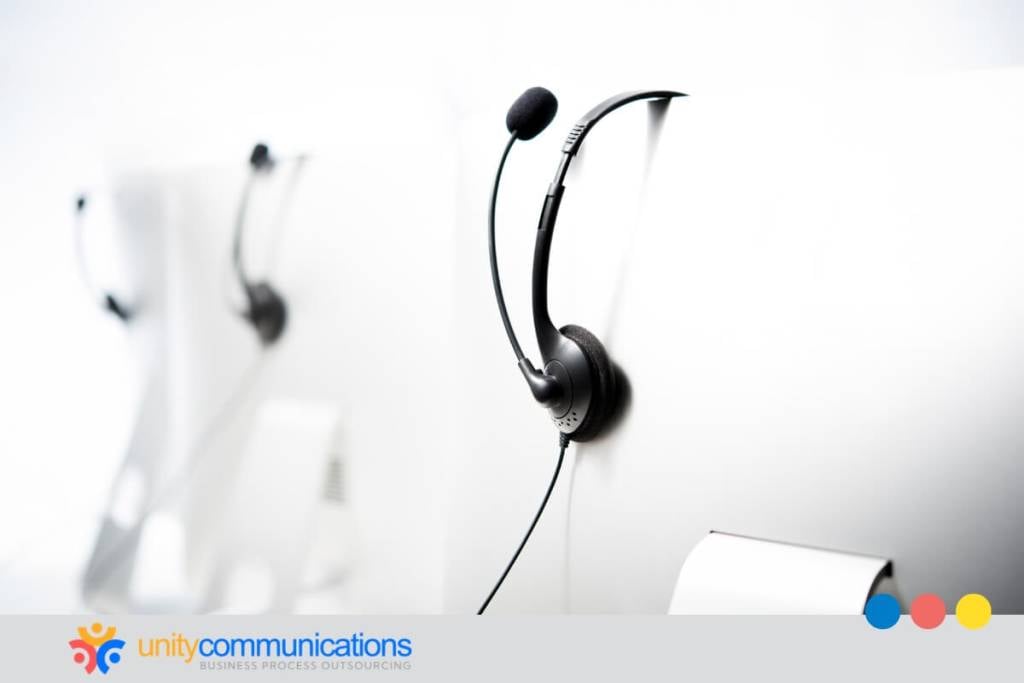IN THIS ARTICLE
Table of Contents
Selecting an office phone system is one of the most important operating decisions a business makes. Despite the plethora of available communication channels, having an excellent office phone system remains imperative. Previously, companies merely chose a traditional landline system since there were no other options. However, the situation has changed.
When creating an office phone infrastructure, the decision is usually encapsulated as PBX vs VoIP cost. Which is cheaper, and which is better for your business?
What Are Hosted Phone Systems?

A hosted telephone is a telephony system that is accommodated in the cloud, instead of physical infrastructure. Hosted phones are suitable for small to large enterprises, customer helplines, call centers, and help desks.
Hosted phones utilize off-premise servers, eliminating the need for on-premise installation and hardware. Instead, this is remotely hosted and may be connected through the internet.
A hosted Private Branch Exchange (PBX) is a remote location where Ethernet circuits can access the system. These lines are solely committed to your business without other additional traffic. PBX provides a reliable way to oversee communication across the business. After the system is established, it can be seamlessly managed. Supplementary features can be added to address your needs when you need them.
With this form of setup, the vendor houses the Hosted PBX and manages the operation and maintenance of the technology in their system.
Alternatively, a traditional phone system requires the system to be stationed at your location and connected directly to an ISDN line. A traditional phone system also needs each staff person to have a desk phone. Hosted telephones allow all inbound calls to be answered using a softphone, desk phone, or mobile app.
What Is a VoIP Phone System?

Voice over Internet Protocol (VoIP) systems transform analog signals into digital ones, so you can make and answer calls directly from the computer, VoIP phones, and other data-driven devices. To put it simply, VoIP is a telephone service sent through the Internet. VoIP may also be called internet telephony, IP phone system, or broadband telephony system.
VoIP allows traditional phone systems to function over computer networks through packet switch protocols. VoIP packet switch places audio signals into packets and transmits them to a local area network (LAN) or any VoIP-compatible network. The amount of information that can be passed through a network using VoIP is larger in quantity since VoIP uses packets.
In addition to the usual telephone services, VoIP provides access to more advanced features. These features can be incorporated into a VoIP system to create more agile and productive processes.
Is PBX the Same as VoIP?

Although PBX and VoIP have similar speeds and quality, the two have several differences. Here, we discuss the most significant differences between the two so you can select the best telephone system for your business.
(1) PBX vs VoIP: Cost
The major difference between PBX and VoIP is the cost of installation. Setting up a PBX system is expensive and cumbersome. You have to pay upfront for power supply networks, adapters, physical phone sets, and other devices. When you add all of these together, the total cost can easily reach thousands of dollars. Since PBX requires a large amount of set-up capital, only large enterprises can afford the system.
Conversely, setting up a VoIP system is easier and more cost-efficient. Since most businesses already have an internet connection, businesses no longer need to put up an entirely new system. Instead, you only pay for the software, phones, and devices that are compatible with VoIP systems and a router that can manage high-quality calls. There is no need to employ a technician who will set up the system.
(2) PBX vs VoIP: Call Quality
The quality and reliability of VoIP connections back in the day were very poor, which is why businesses opted for PBX systems. Calls were more reliable and voice quality was far better than VoIP. Now, there isn’t much difference between calls made using either type of system. Since high definition audio and video calling is the norm, both PBX and VoIP adjusted to meet consumer demands.
The hardware, such as the routers and phone devices, is what determines the quality of calls with PBX lines. When the system has been properly set up and the devices properly selected, the improved quality of calls will follow.
However, the case is different for VoIP since more factors dictate the quality of sound. The most important and most common cause for poor quality calls is a poor internet connection. The device used might also have an effect. Routers that are not properly configured will produce bottlenecks in the system. In addition, the software and type of desk phones used by the company play a role.
(3) PBX vs VoIP: Scalability
VoIP and PBX also differ in terms of scalability. Upgrading to a better system is extremely easy to do with a VoIP system. You can simply integrate new software, download a different app, or add more devices and users. Even an international phone number is very easy to add to your system. It only takes a few minutes. Switching to a different router or a new office location? No problem! VoIP makes all of those easy; the most work you would need to do is perhaps to upgrade your internet package.
VoIP also offers more advanced features that PBX does not. If you want to do so, you can usually customize the features you want to include in your plan.
Conversely, PBS systems are not as scalable. Transferring to a new office or location can be difficult and is sometimes just plain impossible. Even simple tasks, such as adding more users, can be a challenge. To do so, you need to add more lines that incur additional costs and work for the business. You will also need to employ a professional technician to take care of system maintenance and installation. Lastly, adding supplemental features to the system requires a large amount of money and very skilled IT personnel.
(4) PBX vs VoIP: Maintenance Cost
Another aspect that sets PBX and VoIP apart is the cost of maintaining and running the system. The cost of PBX maintenance is contingent on your setup. The cost of the phone bills, maintenance processes, and rectification of maintenance issues eventually add up. On top of that, you have to add the cost of the software and licenses.
On the other hand, VoIP only requires a subscription fee. How much you pay depends on the type of plan you choose. Depending on your provider, you can choose features from among different plans from starter packages to tailor-made plans.
Why Are PBX Phone Systems Expensive?

Private Branch Exchange systems are the tried and true forms of office business phones. Since many modern business phone systems are cutting-edge, the need for PBX lines is becoming questionable. Whether PBX is worth it or not depends on your needs. However in most cases, the answer is no because other feature-rich options can be had for a fraction of the price. If you’re still wondering about PBX vs. VoIP cost, then consider the factors we listed below to see why PBX costs so much more.
Cost of Maintenance and Upgrades
PBX systems require routine maintenance if they are to function at an optimal level. Frequent updates and maintenance can easily increase costs. Between software licensing, planned maintenance, and training, PBX can get more expensive than many businesses foresee.
Connecting Lines From Different Locations is Expensive
Some businesses have facilities in more than one location. Most often, these facilities need to be connected with each other to achieve a unified communication system. If a PBX network is the communication system, setup and integration will not only be expensive but also complicated. A broken line in one area results in a broken connection in all the other areas where it is connected.
Additional Expense For Supplementary Features
Nowadays, businesses need more than audio calls to interact with the customers and each member of the team. They must have access to technologies such as email, video conferencing, file sharing, teleconferences, etc. Of all these features, a PBX system can only do one thing: make and respond to phone calls. To get the aforementioned features, businesses need to employ a third-party vendor in conjunction with their telephone system provider. Doing so incurs additional costs. Not to mention the difficulty of integrating two different systems.
To save on cost, you can use a system that has everything you need in one network. VoIP solutions are the frontrunner in this regard because they integrate various other applications into their system.
Why Are VoIP Phone Systems Cheaper Than Landlines?

You might wonder why VoIP costs so much less than legacy phone systems. The easy answer is that VoIP uses the existing internet connection instead of needing to open a separate system with additional devices.
If you look at costs for PBX vs. VoIP, a clear distinction with regard to their prices exists, and we believe that it’s because of the following factors:
1. Decreased Cost With a Single Service Provider
Since businesses using VoIP have reduced phone bills, the total overhead of IP phone systems is significantly lower. With VoIP, there’s no need to work with multiple vendors. Instead, all your data, mobile, and office needs are handled by a single network.
2. Minimized IT and Support Activities
IT and maintenance solutions for VoIP systems are managed and overseen by the vendor. This way, IT support for the business part is less needed, leaving more opportunities for the business to develop other business functions.
3. Better Return on Investment
Users of IP systems pay a monthly or annual subscription fee on a per-user basis. Since VoIP users are not restricted to a specific location or phone line for their communications, employees have better mobility. Ultimately this saves the company from expensive long-distance charges.
4. Reduced Expenses for Device and Installation
Since IP systems are hosted online, this eliminates the need for physical devices and cumbersome installation processes. Depending on your VoIP provider, they can send you provisioned devices, and all you have left to do is plug them into your internet.
What Are the Benefits of IP Technology for Phone Systems?

IP solutions bring increased productive efficiency to a business that legacy phone systems simply cannot do. In addition to financial advantages, VoIP helps businesses in the following aspects:
- Saving Time: Employees can spend less time managing paper jams while looking for them. With VoIP, users can directly send a fax mail to someone’s email inbox. This way the fax is automatically attached and sent through email,
- Automating Customer Helpdesk: Customer service agents can lessen the time spent to solve each customer query by setting an auto attendant with recorded instructions for basic troubleshooting concerns.
- Efficient Call Routing: Automatic call routing has many advantages. Certain concerns can instantly be forwarded to the designated department. You can also manage high-volume call times using call routing,
Upgrading and scaling down to match your business’s needs is crucial to ensuring success. It’s certainly much simpler and easier to do these tasks with a legacy telephone system.
The Bottom Line
While comparing the costs of an IP system and PBX, remember not to focus solely on expenses. Prioritize alignment with your needs. Opt for a provider that offers support, updates, risk prevention, and proactive system monitoring. Long-term effectiveness is better served by a provider catering significantly to your business needs rather than just going for the cheapest choice.
Ready to revolutionize how your business communicates? Dive into our latest blog showcasing 12 Cutting-Edge VOIP Examples for Businesses in 2023. From seamless remote collaboration to cost-effective customer service, these real-world examples will inspire you to elevate your communication strategy.





